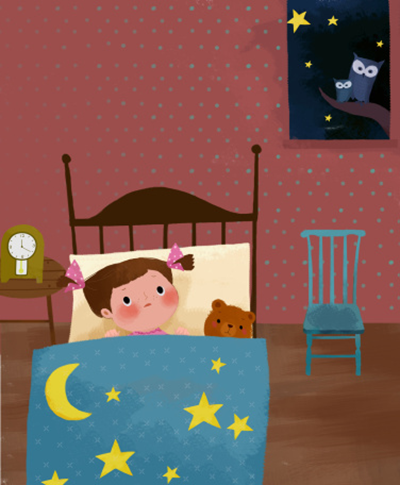
Problems with getting a child to go to sleep at night can result in issues with school performance. Grades slip, homework does not get finished, and you and your child both end up a cranky mess. Sleep is more than restorative, and the ability to problem solve may occur during restful sleep, experts say. In addition, without it, cognitive and physical function decreases during waking hours.
How to Tell When a Child is Getting Enough Sleep
Lack of sleep in a child can be readily apparent in some, while more subtle in others. Temper tantrums, moodiness and a tendency to anger easily can result from lack of sleep in a child. Other signs include difficulty getting the child up in the morning, grogginess and balkiness at getting dressed and eating breakfast. Hyperactivity can also signal lack of sleep as a child increases activity in an attempt to stay awake.
To Sleep, Perchance to Dream
Getting a child to go to sleep at a reasonable hour involves a few different techniques that can help. The techniques are different depending on the age of the child. For younger children, a warm bath and a bedtime story is a proven method of inducing sleep. Be sure not to let the child eat chocolate or other items with caffeine close to bedtime because that can interfere with sleep. A bedtime ritual with a scheduled bedtime helps a child get into the habit of going to sleep effectively.
During this wind-down, it helps to turn off the television or other distracting noise. Once the child is going to sleep at the same time each night, maintain those hours on a daily basis. Allowing a child to sleep in on the weekends and stay up until late at night may mean that you have to start all over again on Monday to get the child back into the routine.
Preteen and Teenage Dilemma
Preteens and teens seem perpetually attached to electronic devices, whether it is a cell phone, computer, game console or television. Having a talk with a preteen or teen about leaving such devices off when bedtime comes around is important. Some parents remove a television or game console from the bedroom because it is too much temptation for their children. Finishing homework may cause a child to extend their bedtime. Too many after school activities can interfere with getting homework done before the child retires for the night. Limiting activities to make way for homework might be necessary.
Sleep Deprivation and Behavioral Problems
In a study done at Northwestern University, behavioral problems associated with sleep deprivation in a group of 510 children aged two to five years old were higher when sleep was lacking. The National Sleep Foundation links sleep deficit to specific behavioral issues such as attention deficit hyperactivity disorder, which interferes with concentration. In fact, even an hour loss of sleep enhances the effect of ADHD.
Sleep is a normal process during which the mind is able to absorb and process information. Children and adolescents need guidance as they achieve a healthy sleep routine. Removing obstacles to sleep such as electronic devices and setting up a routine may provide a way to assure adequate and restful sleep.





